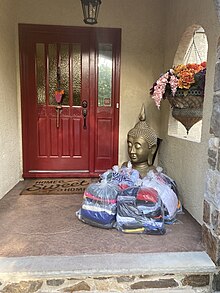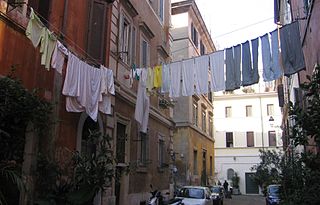
Laundry is the washing of clothing and other textiles, and, more broadly, their drying and ironing as well. Laundry has been part of history since humans began to wear clothes, so the methods by which different cultures have dealt with this universal human need are of interest to several branches of scholarship.

A washing machine is a machine designed to launder clothing. The term is mostly applied to machines that use water. Other ways of doing laundry include dry cleaning and ultrasonic cleaning.

Uber Technologies, Inc. is an American multinational transportation company that provides ride-hailing services, courier services, food delivery, and freight transport. It is headquartered in San Francisco, California, and operates in approximately 70 countries and 10,500 cities worldwide. It is the largest ridesharing company worldwide with over 150 million monthly active users and 6 million active drivers and couriers. It coordinates an average of 28 million trips per day, and has coordinated 47 billion trips since its inception in 2010. In 2023, the company had a take rate of 28.7% for mobility services and 18.3% for food delivery.

Sunlight is a brand of laundry soap, laundry detergent and dishwashing detergent manufactured and marketed around the world by Unilever, except in the United States and Canada, where it has been owned by Sun Products since 2010.
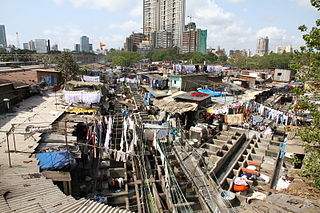
Dhobi Ghat is an open air laundry in Mumbai, India. It was constructed in 1890. The washers, known as dhobis, work in the open to clean clothes and linens from Mumbai's hotels and hospitals.
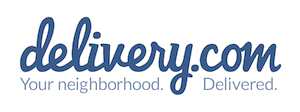
delivery.com LLC is an American online platform and suite of mobile apps that enables users to order from local restaurants and stores for on-demand delivery. The company currently has more than one million users and an online marketplace of more than 12,000 restaurants, wine and liquor stores, grocery stores, and laundry/dry cleaning providers.
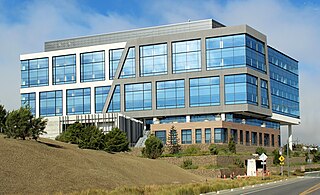
Stripe, Inc. is an Irish-American multinational financial services and software as a service (SaaS) company dual-headquartered in South San Francisco, California, United States, and Dublin, Ireland. The company primarily offers payment-processing software and application programming interfaces for e-commerce websites and mobile applications.
The sharing economy is a socio-economic system whereby consumers share in the creation, production, distribution, trade and consumption of goods, and services. These systems take a variety of forms, often leveraging information technology and the Internet, particularly digital platforms, to facilitate the distribution, sharing and reuse of excess capacity in goods and services.

Ola Consumer, formerly Ola Cabs, is an Indian transportation company that provides ride-hailing services and operates other business verticals such as financial services and cloud kitchens. It is headquartered in Bangalore, and operates in 250+ Indian cities.
The Independent Workers' Union of Great Britain (IWGB) is a trade union in the United Kingdom. The IWGB comprises eleven branches which organise workers within their chosen industry, run their own campaigns and have their own representative officials. Their members are predominantly low-paid migrant workers in London. The IWGB began as a breakaway from Unite and UNISON. The dispute stemmed from disagreements over how to get better working conditions for cleaners at the University of London, and, more broadly, about how to run modern trade unions. The IWGB is one of the main trade unions in challenging employment law relating to the 'gig economy'.
ChowNow is an online food ordering platform that connects customers with local restaurants. Christopher Webb and Eric Jaffe, American entrepreneurs, founded the company in 2011 with headquarters in Los Angeles, California.
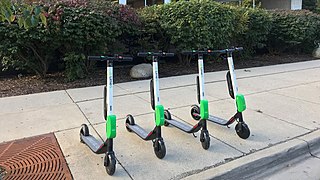
Neutron Holdings, Inc., doing business under the name Lime, formerly LimeBike, is an American transportation company based in San Francisco, California. It runs electric scooters, electric bikes and electric mopeds in more than 200 cities in nearly 30 countries around the world. The system offers dockless vehicles that users find and unlock via a smartphone app that knows the location of available vehicles via GPS.
inDrive, is an international ride-hailing service with more than 200 million downloads operating in more that 700 cities in over 45 countries. Headquartered in Mountain View, California, it is the second largest ridesharing and taxi app worldwide by downloads. The company was officially launched in 2013.

Gig workers are independent contractors, online platform workers, contract firm workers, on-call workers, and temporary workers. Gig workers enter into formal agreements with on-demand companies to provide services to the company's clients.
Sezzle is a publicly traded financial technology company headquartered in Minneapolis, U.S, with operations in the United States and Canada. The company provides an alternative payment platform offering interest-free installment plans at selected online stores. As of June 2021, the Sezzle platform had over 10 million user sign-ups and over 48,000 participating merchants.

Swvl Holdings Corp. is an Dubai-based provider of tech-enabled mass transit solutions, offering intercity, intracity, B2B and B2G transportation products and services. Swvl operates in 135 cities in 20 countries across Latin America, Europe, Africa and Asia. The company went public in March 2022 and is traded on the Nasdaq stock exchange under the ticker SWVL.

Proposition 22 was a ballot initiative in California that became law after the November 2020 state election, passing with 59% of the vote and granting app-based transportation and delivery companies an exception to Assembly Bill 5 by classifying their drivers as "independent contractors", rather than "employees". The law exempts employers from providing the full suite of mandated employee benefits while instead giving drivers new protections:
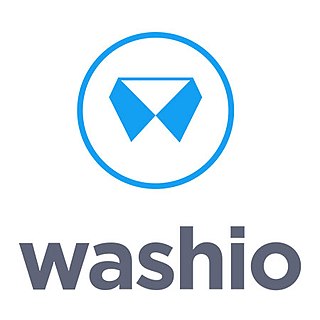
Washio was an American on-demand laundry cleaning and delivery service. The company was founded in 2013 by Jordan Metzner, Bob Wall, and Juan Dulanto, and raised $17 million in funding.

Onfleet is a San Francisco-based delivery software company, specializing in last mile delivery. Its customers include Sweetgreen, Kroger and Total Wine & More.
